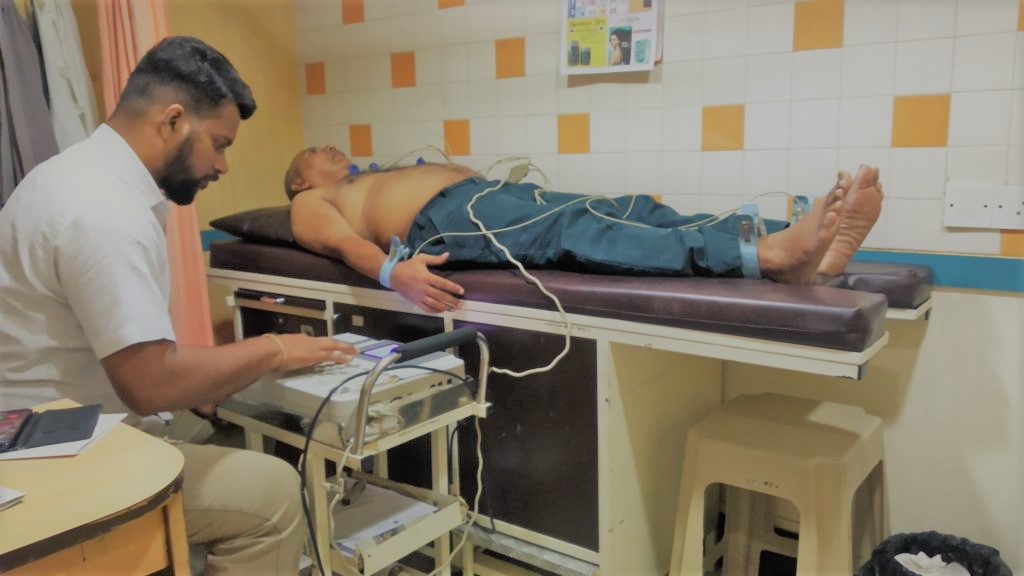ECG - GSBS Medical Trust Mumbai
An electrocardiogram (ECG) is a test that checks how your heart is functioning by measuring the electrical activity of the heart. With each heart beat, an electrical impulse (or wave) travels through your heart. This wave causes the muscle to squeeze and pump blood from the heart.
Why is it done?
An ECG may be recommended if you are experiencing arrhythmia, chest pain, or palpitations and an abnormal ECG result can be a signal of a number of different heart conditions.
It is done to:
Detect abnormal heart rhythms that may have caused blood clots to form.
Detect heart problems, including a recent or ongoing heart attack, abnormal heart rhythms (arrhythmias), coronary artery blockage, areas of damaged heart muscle (from a prior heart attack), enlargement of the heart, and inflammation of the sac surrounding the heart (pericarditis).
Detect non-heart conditions such as electrolyte imbalances and lung diseases.
Monitor recovery from a heart attack, progression of heart disease, or the effectiveness of certain heart medications or a pacemaker.
Rule out hidden heart disease in patients about to undergo surgery.
Check the centre closest to you to see if an ECG test is available:
✆ Health Rakshak: 7715026134
✆ Dharavi: 8828871982
✆ Mahim: 8828871981
To consult with a cardiologist, kindly visit this page to view our panel of doctors.
Preparation:
You do not have to restrict what you eat or drink before your ECG, although it is recommended that you not smoke just before the test.
You will be asked to remove your jewellery and wear a hospital gown.
What can you expect?
An ECG is a non-invasive procedure, which means that nothing is injected into the body.
It is painless.
A number of electrodes – usually a total of 12 – are attached to various locations on your body including your arm, leg and chest.
The electrodes are attached by small suction cups or adhesive patches. Sensors in the pads detect the electrical activity of your heart.
The test is usually performed while you lie still.
Results are most often recorded on graph paper and interpreted or read by a doctor.
The test usually takes 5 to 10 minutes.
For more details, kindly call on the respective centre number.




